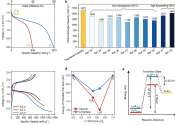Electricity (from the New Latin ēlectricus, "amber-like"[a]) is a general term that encompasses a variety of phenomena resulting from the presence and flow of electric charge. These include many easily recognizable phenomena, such as lightning and static electricity, but in addition, less familiar concepts, such as the electromagnetic field and electromagnetic induction.
In general usage, the word 'electricity' is adequate to refer to a number of physical effects. However, in scientific usage, the term is vague, and these related, but distinct, concepts are better identified by more precise terms:
Electrical phenomena have been studied since antiquity, though advances in the science were not made until the seventeenth and eighteenth centuries. Practical applications for electricity however remained few, and it would not be until the late nineteenth century that engineers were able to put it to industrial and residential use. The rapid expansion in electrical technology at this time transformed industry and society. Electricity's extraordinary versatility as a source of energy means it can be put to an almost limitless set of applications which include transport, heating, lighting, communications, and computation. The backbone of modern industrial society is, and for the foreseeable future can be expected to remain, the use of electrical power.









